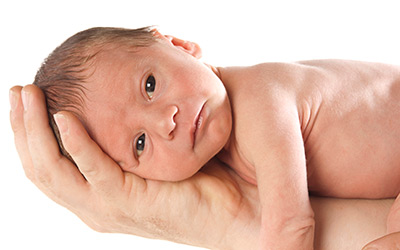

From conception to death, the sanctity of human life is a principle worth defending. Psalm 82:3-4 is applicable to our Christian calling in a world of evil and darkness: “Vindicate the weak and fatherless; do justice to the afflicted and destitute. Rescue the weak and needy; deliver them out of the hand of the wicked.”
Jan. 20 is Sanctity of Human Life Sunday. The original proclamation was made by President Ronald Reagan in 1984 and was designed to coincide with the 11th anniversary of Roe v. Wade, the infamous Supreme Court ruling that legalized abortion. Reagan renewed the proclamation yearly. So did George H.W. Bush. Bill Clinton did not. George W. Bush did. Barack Obama has not (although he has proclaimed national lesbian, gay, bisexual, and transgender pride month).
 Gray
GraySince 1973, approximately 60 million unborn babies have been aborted. This is a staggering number, and Southern Baptists have been solid overall in their opposition to abortion. This year, Sanctity of Human Life Sunday coincides with the 40th anniversary of Roe v. Wade.
As God’s people, we must continue our work of supporting adoption, opposing abortion, and helping those affected by abortion. But the sanctity of life includes more. Euthanasia – specifically, assisted suicide – is growing in America. Frances Schaffer sounds prophetic today as we recall his question of years ago: “In our post-Christian world, has man’s dignity been destroyed?”
Once a society concludes that human life is not sacred, no one’s life is safe, particularly the unborn, the sick, the weak, and the aged. Elder abuse is an escalating problem in our world. Dr. Xinqi Dong, geriatric specialist and associate professor at Rush University Medical College in Chicago, has observed: “Elder abuse is a substantial global public health issue. In the United States, an estimated 10 percent of elders experience abuse each year, and many of them experience it in multiple forms.”
CNN has reported that as many as 90 percent of nursing homes are understaffed and that more than a third have been cited for unnecessary dispensing of prescription drugs and/or administering the wrong drugs to patients (too often resulting in death). While most nursing homes are not guilty of abuse, around 30 percent are. Why? The top reasons cited are negligent hiring (no background checks, etc.), inadequate training of the staff, staff burnout, staff shortages, and stressful working conditions.
Even though we may be appalled that some people are abused in some nursing homes and adult care facilities, about 90 percent of abuse is at the hands of a family member. Statistics are not consistent, and estimates vary, but it could be that for every case of elder abuse that is reported, five more go unreported. Most seniors who are abused are women.
Over age 60, the types of abuse reported most frequently are physical, sexual, emotional, neglect, abandonment, financial, verbal and exploitation. About 47 percent of people with some type of dementia and still living at home have been abused or neglected by their caregivers.
Human life is not respected where there is moral darkness. We are made in the image of God, and human life is sacred. However, that does not mean people will be treated with dignity. Honoring the elderly is right. Abusing them is shameful. Allowing known abuse to occur is unconscionable.
The one common experience we will all share if we live long enough is that we will grow old. While conception is the beginning of life, old age is the twilight time of life. Sanctity of human life, at least, means we respect the dignity of life from beginning to end.
As we give special emphasis to this on Jan. 20, let us do so with the motive to be the light we are called to be in a world where darkness thrives. Christ is the light of the world, and we are called to be light in this world.
